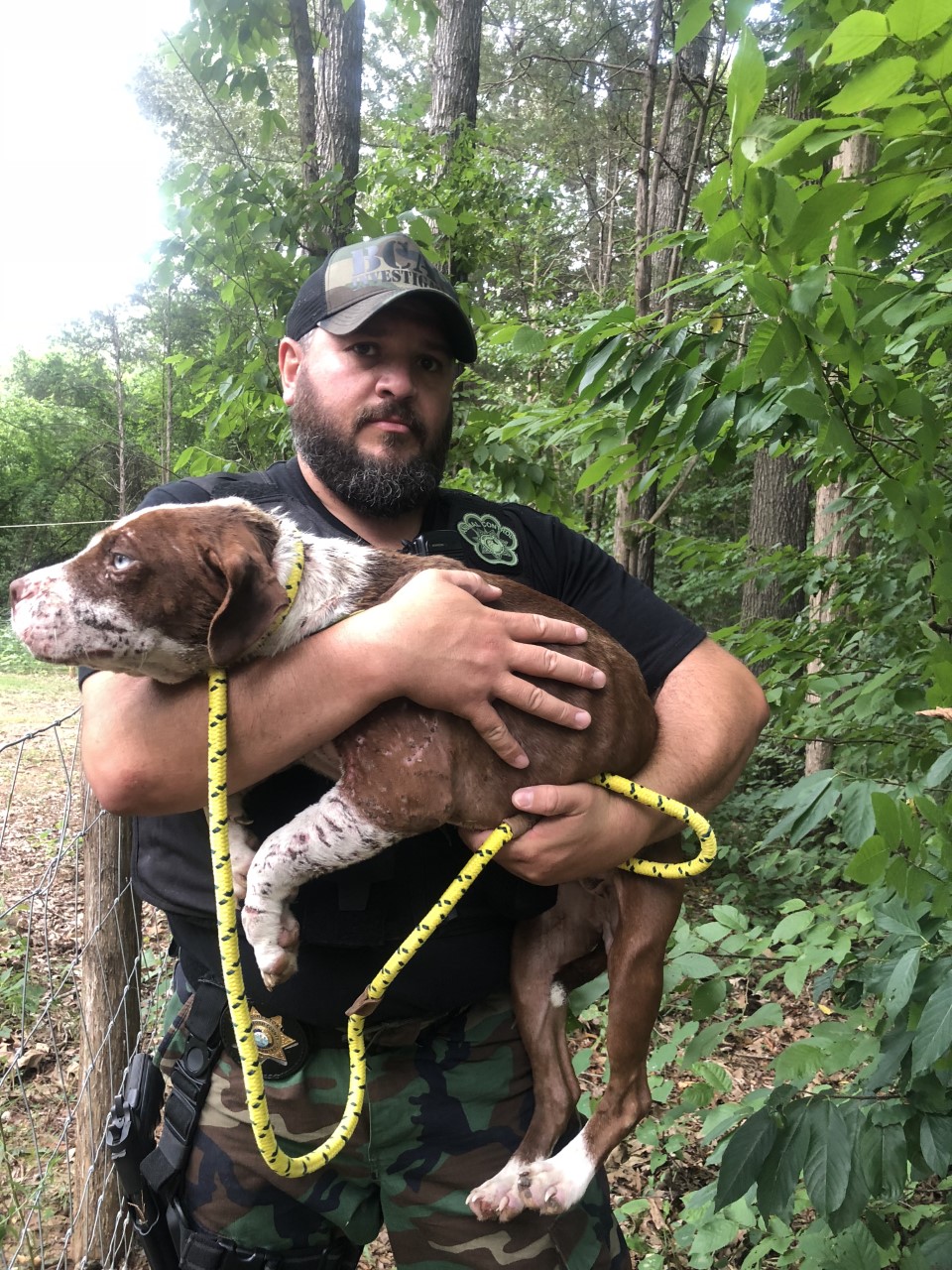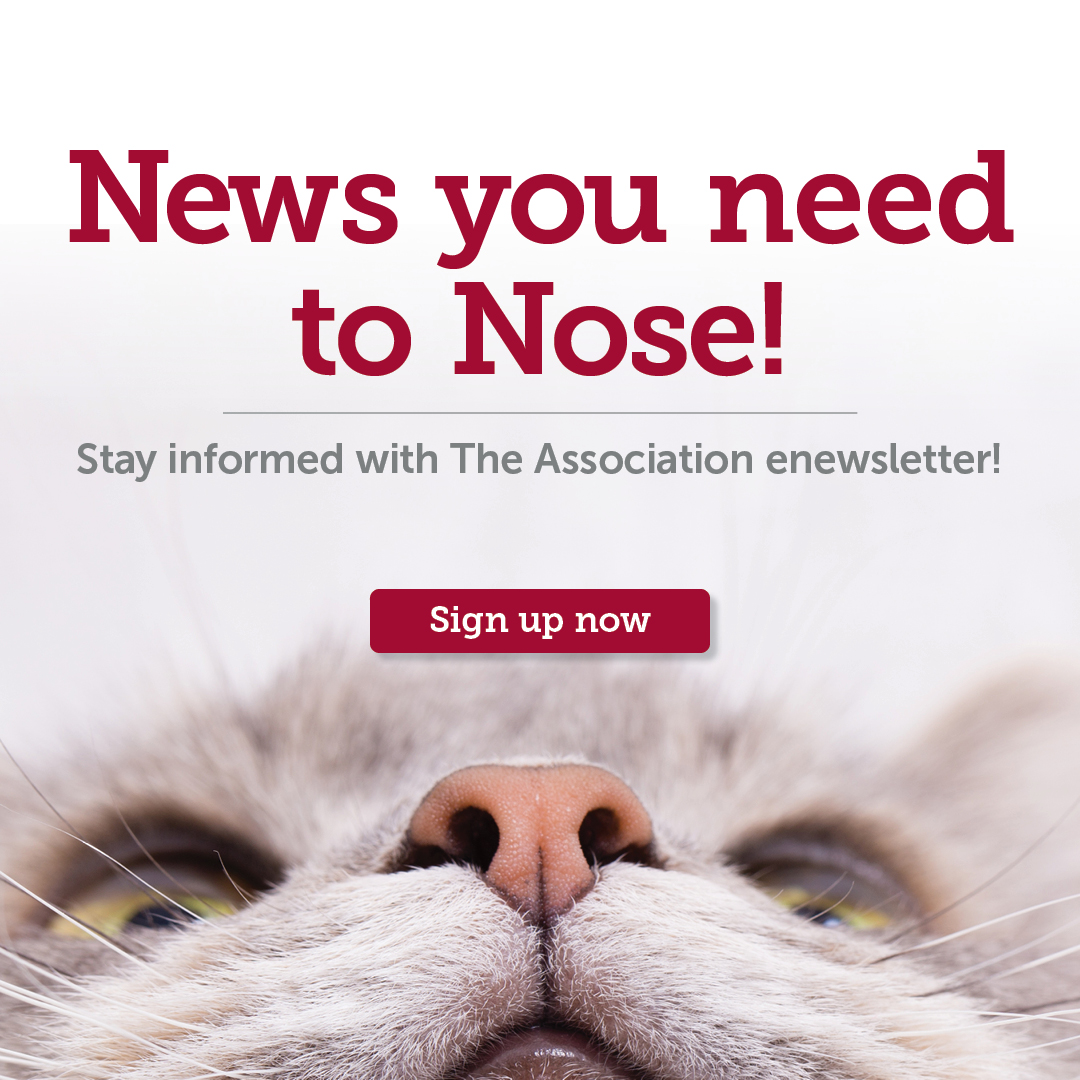News, ideas & inspiration from industry leaders

Member Spotlight: Get To Know Jack Cooper, CAWA
As the Director and Chief Animal Control Officer at Tennessee’s Maury County Animal Services, Jack Cooper knows that a staff that jogs together, saves lives together. Read on as this four-time Ironman shares some of the most impactful changes he and his team have made in the last few years.
Name: Jack Cooper, CAWA
Member of The Association for Animal Welfare Advancement since: 2020
Title & Organization: Director and Chief Animal Control Officer, Maury County Animal Services
Q&A with Jack Cooper, CAWA
The Association: Describe yourself in 3 words.
Jack Cooper: Resilient. Determined. Kind.
The Association: Describe Maury County Animal Services in 3 words.
Jack Cooper: Plucky. Progressive. Proactive.
The Association: Tell us about your favorite challenges at MCAS.
Jack Cooper: I like to look at challenges as opportunities, and was happy to discover several opportunities when I took over leadership in January 2019. Here are two of the biggest challenges-turned-opportunities to date:
Soon after I became director, we absorbed Maury County Rabies Control and Columbia Animal Control into our Animal Services program. These two agencies were completely separate from ours, but the newly elected County Mayor and I agreed that animal control should be part of our larger animal services mission. So, we moved Rabies Control into our building and rebranded it as the Animal Control Division. The City of Columbia Police Department disbanded its animal control unit shortly thereafter, and we also inherited animal control responsibilities for that city of 50,000 residents. Now, MCAS offers comprehensive services to our City and County residents, in addition to two of our smaller but growing cities, Spring Hill and Mount Pleasant. We have standardized training and operating procedures across the board, increased the number of officers and their availability, and dramatically improved the effectiveness and the image of Animal Control in our community.
In 2019, almost ALL animal care was performed by inmate trustees, while staff members primarily focused on customer service and clerical duties. I believe it is crucial for staff to have daily, hands-on interactions with shelter animals for a shelter program to be successful. Not only is this best for the health and welfare of our shelter animals, but it also gives staff a sense of ownership and pride in their work. Over the course of 2019, and not without growing pains, we transitioned from inmate-provided animal care to a 100% staff animal care team, complete with some formal training and actual uniforms. I am very proud of my staff for sticking with me, even when things were hard.
Bonus: We also created the Special Tactical Animal Rescue team. Candidates wishing to join S.T.A.R. must pass a PT test, including a 1.7-mile trail run, 25 push-ups, 25 sit-ups, and a 200-meter open water swim. They must be NACA- certified ACOs, credentialed Disaster Animal Response Team members, as well as Swiftwater and Rope Rescue-qualified.
So far this summer, we successfully performed a rope rescue after a calf had fallen about 30 feet down into a well/drain. With help from Maury County Fire Dept. and another S.T.A.R. operator, I was able to rope down to the little calf and get him back to the surface, where he received veterinary care on site with one of our shelter veterinarians. He’s doing great!
The Association: Share one small victory you had this week—personally or professionally.
Jack Cooper: I successfully changed out all of the oxygen sensors in my SUV so it could pass emissions. And I am NOT a car person.
The Association: What’s one thing you’ve done to stay healthy and resilient this past year?
Jack Cooper: I’ve always believed that physical fitness is vital for personal and professional wellbeing. I’m a four-time Ironman triathlon finisher, so I’ve been very active most of my life. Over the past year, I committed to remaining active no matter what (taking COVID precautions, of course).
During the early days of the pandemic, some of my staff and I started jogging 2 miles a day together after our shifts. Several of us continued jogging and hiking regularly. I focused on some of my other outdoor interests, too, like rock climbing. My wife, Dr. Sara Cooper, a shelter veterinarian; my 11-year-old daughter, Grace, and I trained for and completed a triathlon this past spring. Sara is also an Ironman triathlon finisher. This was Grace’s first triathlon and we are very proud of her.
The Association: Looking back at 2020, what’s one thing you started doing, either personally or professionally, that you plan to carry over into 2021 and beyond? What’s one thing you won’t miss doing?
Jack Cooper: We moved to an appointment-based intake and adoption system during the pandemic, which has been wildly successful. This year, intakes have increased nearly 40%, but adoptions have increased over 60%. And, our shelter population has remained manageable, so all animals are receiving excellent care.
Our intake numbers and adoptions last summer were consistent with previous years, with no discernable difference due to the pandemic, so we believe these increases are strongly correlated with the new system. We decided to make managed adoption and surrender appointments part of our normal daily operations going forward, due to the overall positive outcomes we have experienced.
But, I definitely won’t miss wearing a mask everywhere.
The Association: Any advice for folks interested in becoming a CAWA?
Jack Cooper: Study the provided source material early and often, and don’t forget to learn as much about nonprofit management as possible, even if you don’t necessarily manage a nonprofit.
The Association: You recently spent a year upgrading your facilities and saw a tremendous impact as a result. What are the two most important/impactful changes you made?
Jack Cooper: The two most important and impactful shelter projects we took on were upgrading and remodeling our surgical suite and clinic area, and installing new lighting and paint throughout all of our kennel areas. Our new and improved clinic and surgery suite have allowed us to increase in-house spay/neuter surgeries by over 400% (from less than 200 to over 1000 a year) since 2018. The new LED lighting (replacing the outdated fluorescent lights) and Fear Free color palette now used throughout the facility have made a more animal-friendly and people-pleasing environment for our shelter animals, staff, and visitors.
I have no doubt these two huge improvements helped us meet and beat our goals for increasing live outcomes for shelter animals and reducing the number of unwanted pets in the community. Since 2018, we have reduced euthanasia by 85% and our live release rate has remained above 90%, and is currently over 95%.
The Association: What’s your favorite one-sentence leadership tip?
Jack Cooper: Don’t let perfect be the enemy of good.
Connect with Jack
Connect with Jack on Facebook
Connect with Jack on LinkedIn


